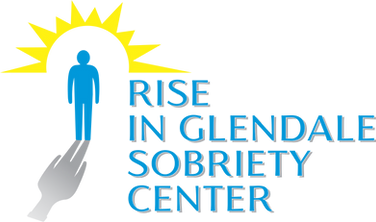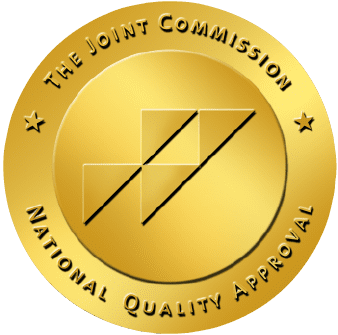in Los Angeles
Opioid Rehab
In Los Angeles California
At Rise Sobriety Center in Los Angeles, we understand the grip that opioid addiction can hold over an individual’s life. That’s why we’ve dedicated ourselves to providing a path to recovery that respects the complexity of this condition, blending advanced medical treatments with compassionate support.
Understanding
Opioid Addiction
Opioids are potent substances derived from the opium poppy plant or synthesized in laboratories. They include a range of substances from prescription pain relievers like morphine and oxycodone to illegal drugs such as heroin. Opioids interact with opioid receptors on nerve cells in the brain and nervous system to produce pain-relieving and euphoric effects. While these drugs can be an essential part of medical treatment, their powerful effects on brain chemistry make them highly addictive, leading to significant misuse and addiction issues across the globe.
Signs You Need Professional Opioid Treatment
Identifying opioid addiction involves observing various behavioral, physical, and psychological signs. These can include but are not limited to: frequent drowsiness, changes in sleep habits, flu-like symptoms, weight loss, frequent flu-like symptoms, decreased libido, lack of hygiene, and changes in exercise habits. Behavioral signs might include isolation from loved ones, borrowing or stealing money, unexplained absences, and decreased productivity at work or school. Recognizing these signs early can be the key to effective intervention and treatment.
Commonly Abused Opioids
Prescription Opioids
Prescription opioids, often prescribed for pain relief, are frequently misused due to their potent effects. Commonly abused types include:
- Oxycodone (OxyContin, Percocet): Prescribed for severe pain, it’s highly potent and often leads to misuse.
- Hydrocodone (Vicodin, Lortab): Used for moderate to severe pain, it’s easily diverted for recreational use.
- Morphine: Effective for severe pain but highly addictive.
- Fentanyl: Extremely potent and used medically for severe pain; illicit use is particularly dangerous and often mixed with other drugs, significantly increasing overdose risks.
Illegal Opioids
The most commonly abused illegal opioid is:
- Heroin: Derived from morphine, heroin is injected, snorted, or smoked, leading to rapid dependence and a high risk of overdose.
The Impact of Opioid Addiction on Individuals and Communities
The consequences of opioid addiction extend far beyond the individual. On a personal level, addiction can lead to devastating health problems, including the risk of overdose and death. It can also strain and break personal relationships, leading to isolation and emotional distress. On a broader scale, opioid addiction can impose significant economic burdens on communities, from increased healthcare and legal costs to lost productivity and increased crime. The social fabric of communities can be severely impacted, with increases in homelessness and child neglect or abuse often accompanying the rise in addiction rates.

Causes of
Opioid Addiction

Genetic Factors
Research shows that genetics play a significant role in determining an individual’s susceptibility to opioid addiction. Certain genetic traits may affect how opioids are metabolized or how pleasure and pain are regulated in the brain, making some individuals more prone to addiction than others.

Environmental Factors
Environmental influences are crucial in the development of opioid addiction. These can include:
- Family and Social Networks: Exposure to family members or peers who misuse opioids increases the likelihood of adopting similar behaviors.
- Economic and Psychological Stress: High-stress levels, whether from financial issues, employment instability, or personal relationships, can drive individuals toward opioid use as a form of escape or self-medication.
- Availability and Accessibility: Easy access to prescription opioids through legal prescriptions or illicit markets significantly contributes to higher rates of misuse and addiction.

Psychological Factors
Psychological aspects play a crucial role in the risk of developing opioid addiction. These include:
- Mental Health Disorders: Individuals with mental health issues such as depression, anxiety, or post-traumatic stress disorder (PTSD) are at a higher risk of substance abuse, including opioids, as they may use these substances to self-medicate.
- Personality Traits: Traits such as impulsivity, sensation-seeking, and high risk-taking behavior are associated with a greater propensity towards addiction.
- Traumatic Experiences: Those who have experienced trauma, especially in childhood, are more susceptible to addiction as opioids may be used to cope with emotional pain.

Chronic Pain
Chronic pain is a significant factor that can lead to opioid addiction. Patients with prolonged pain conditions are often prescribed opioids for long-term management. This extended use increases the risk of developing a dependency as the body becomes tolerant to the drugs, requiring higher doses to achieve the same level of pain relief. Over time, this can evolve into an addiction as the user begins to use opioids not just for pain relief but also to avoid withdrawal symptoms.

Opioid Treatment
Programs and Rehab
Detoxification Process at Rise Sobriety Center
The first step in overcoming opioid addiction is often a medical detox. At Rise Sobriety Center, this process is managed with the utmost care to ensure safety and minimize discomfort. Detox involves medically supervised withdrawal from opioids, which can be intense and painful. Symptoms such as nausea, muscle aches, agitation, and anxiety are common. Our medical team provides 24/7 care, administers medications to reduce these symptoms, and monitors patients’ vital signs to prevent complications.
Medication-Assisted Treatment for Opioid Addiction
Suboxone Treatment
Suboxone is one of the primary medications used in our MAT program. It contains buprenorphine and naloxone. Buprenorphine is a partial opioid agonist, which relieves withdrawal symptoms and cravings without producing the high associated opioid use. Naloxone helps prevent misuse of the medication. This combination is highly effective in stabilizing patients and allowing them to engage in therapy and counseling more effectively.
Methadone Maintenance
Methadone, a long-acting opioid agonist, reduces opioid cravings and withdrawal symptoms by acting on the same opioid receptors as other opioids. It is administered daily under supervision at our clinic to ensure compliance and safety. Methadone maintenance can continue for months or even years, providing the stability needed for individuals to rebuild their lives.
Behavioral Therapies
Behavioral therapies are a core component of our comprehensive treatment approach. These therapies address the psychological aspects of addiction, helping individuals to modify their attitudes and behaviors related to drug use, and increase healthy life skills.
Cognitive-Behavioral Therapy (CBT)
CBT is a form of psychotherapy that helps patients manage their problems by changing the way they think and behave. It is particularly effective for treating addiction, as it helps individuals to challenge and change unhelpful cognitive distortions and behaviors to solve current problems. Moreover, CBT provides a structured way to identify and cope with triggers for drug use, reducing the risk of relapse.
Dialectical Behavior Therapy (DBT)
DBT is used to treat severe personality disorders, including conditions that often co-occur with addiction, like borderline personality disorder. It emphasizes the psychosocial aspects of treatment, teaching patients skills to manage their emotions, handle distress, and improve relationships with others. DBT is particularly effective in those who have not responded well to other therapy types, offering new skills to manage painful emotions and decrease conflict in relationships.

How to
Get Started
Admission Process
Beginning treatment at Rise Sobriety Center starts with a simple phone call or email inquiry. Our friendly admissions team is ready to answer any questions you may have about our programs and can assist with everything from scheduling an initial assessment to discussing payment options. During the initial assessment, our clinical team will evaluate your specific situation, including your history of substance use, physical health, and psychological status, to develop a personalized treatment plan.
What to Expect During Your Treatment
Once admitted, clients will undergo a comprehensive intake process, which includes a medical exam, a psychological assessment, and an orientation session where you will learn about program rules, your rights as a client, and what to expect during your stay. Treatment at Rise Sobriety Center is multi-faceted and holistic, combining medical interventions like detoxification and MAT with psychotherapy, group therapy sessions, and supportive services such as nutritional counseling, physical fitness activities, and mindfulness training. Our goal is to not only help you recover from opioid addiction but also to enhance your overall well-being and prepare you for a successful life post-treatment.
Start your
Journey to Recovery
At Rise Sobriety Center, we’re committed to helping you reclaim your life from opioid addiction. With state-of-the-art treatments, compassionate care, and a community of support, we’re here to guide you every step of the way. If you or a loved one are struggling with substance abuse, get in touch with us. Commit to change today and start your journey to recovery.
Your Journey to Living a Life Free of Addiction, Starts Here!
Frequently Asked
Questions
The duration of treatment varies based on individual needs, addiction severity, and response to treatment. Our program typically follows a three-phase approach:
- Phase 1 (Medical Detox): 5-10 days, depending on the specific opioid and usage history
- Phase 2 (Treatment Program): 30-90 days of intensive therapy and rehabilitation
- Phase 3 (Aftercare): Ongoing support for 6-12 months or longer
Research shows that longer treatment durations are associated with better outcomes, particularly for opioid addiction. We work with each client to determine the most appropriate timeline for their specific situation.
Yes, most insurance plans cover opioid addiction treatment, including detox and rehabilitation services. Rise Sobriety Center accepts most major insurance providers. We can verify your insurance coverage before admission to help you understand your benefits and any potential out-of-pocket costs. For clients without insurance coverage, we offer various payment options and can help explore financing alternatives.
Medication-assisted treatment combines FDA-approved medications with counseling and behavioral therapies to provide a comprehensive approach to opioid addiction. At Rise Sobriety Center, our MAT program may include:
- Buprenorphine (Suboxone): Reduces cravings and withdrawal symptoms
- Methadone: Helps manage withdrawal and reduces opioid cravings
- Naltrexone: Blocks the euphoric effects of opioids
These medications are prescribed by our medical staff as part of a holistic treatment plan tailored to each client’s needs, and are always used in conjunction with appropriate counseling and therapy.
Our program distinguishes itself through several key features:
- Three-phase approach addressing all aspects of recovery
- Individualized treatment plans developed by our multidisciplinary team
- Medically supervised detoxification ensuring comfort and safety
- Evidence-based therapeutic modalities combined with holistic approaches
- Gourmet, healthy meals prepared by our chef to support physical recovery
- Luxurious, healing environment in our Glendale facility
- Strong aftercare support to prevent relapse and ensure long-term recovery
We believe in treating the whole person, not just the addiction, addressing underlying causes while providing tools for sustained recovery.
Opioid detoxification at Rise Sobriety Center is a medically supervised process where the body safely clears itself of opioids while withdrawal symptoms are managed by our medical team. The process typically includes:
- Medical assessment upon admission
- Personalized detox protocol based on your specific needs
- Medical supervision 24/7 throughout the detox period
- Medication management to reduce discomfort and cravings
- Nutritional support to help your body heal
- Beginning therapeutic interventions to address psychological aspects
Our goal is to make the detox process as comfortable and safe as possible, preparing you for the next phase of treatment.
Family involvement is vital to successful long-term recovery. At Rise Sobriety Center, we offer:
- Family therapy sessions to improve communication and heal relationships
- Educational workshops to help family members understand addiction
- Support resources for family members dealing with their own challenges
- Involvement in aftercare planning to create a supportive home environment
We view the family as an essential part of the recovery team and work to ensure they have the tools and knowledge to support their loved one effectively.

